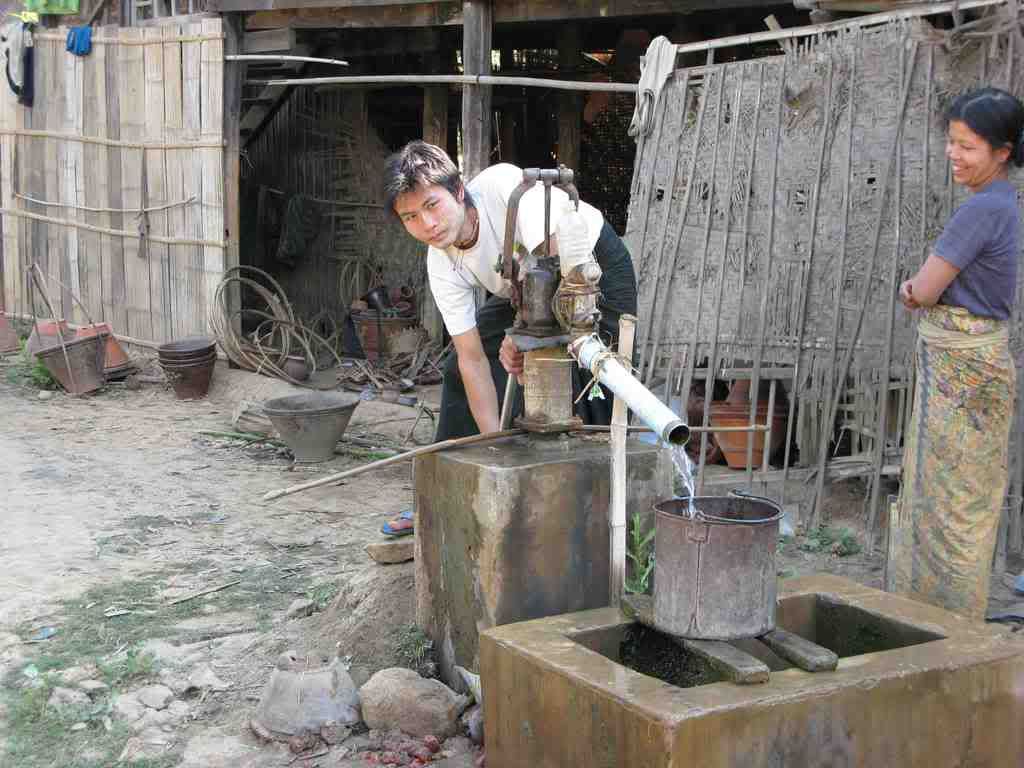 It's a rare day that goes by without a story somewhere in the news about a cholera outbreak in Asia or Africa. In 2007, the World Health Organization received reports of 177,963 cases of cholera – including 4,031 deaths – from 53 countries. These data are not all-inclusive. No cases were reported from Central or South America, and no information was available from the Western Pacific or Central Asia.
It's a rare day that goes by without a story somewhere in the news about a cholera outbreak in Asia or Africa. In 2007, the World Health Organization received reports of 177,963 cases of cholera – including 4,031 deaths – from 53 countries. These data are not all-inclusive. No cases were reported from Central or South America, and no information was available from the Western Pacific or Central Asia.The culprit is Vibrio cholerae, a rod-shaped bacterium that is spread through contaminated water – including shellfish harvested from contaminated sea beds, produce grown using contaminated irrigation water, or produce washed in contaminated water.
Vibrio cholerae infections result in a watery diarrhea, which can vary from mild to severe – sometimes bloody. Severe cases can result in life-threatening dehydration, especially in the very young and the elderly.
Following are recent examples of the impact of cholera on the health and lives of people living in parts of Africa and Asia.
Kenya (July 29th): Government officials blamed contaminated water for recurring outbreaks of cholera in the western province of Nyanza. A high water table, wells located too close to latrines, and poor sanitation practices were cited as contributing to the outbreaks.
Guinea-Bissau (August 1st): Cholera has caused 25 deaths and 1,077 illnesses so far in an outbreak that has spread through the country. Three-quarters of the victims live in the capital city, Bissau. As in Kenya, heavy rains and contaminated wells have contributed to the problem. Only 20% of the residents of Bissau have access to municipal "piped" water.
Zimbabwe (August 4th): Harare has been hit with an outbreak of diarrhea, which may or may not be due to Vibrio cholerae. As in Bissau, a severe lack of municipal water has forced residents to use water from nearby – often polluted – streams, and unprotected wells.
Indonesia (August 4th): Social workers have accused government officials of neglecting a cholera outbreak that has killed 173 people since April. The Health Ministry disputed the claimed death toll, saying that "only" 87 people have died. The Ministry blamed the on-going outbreak on a traditional custom of hugging dead bodies.
The Indonesian situation is just one example of how political and cultural issues can complicate the fight against cholera and other similar diseases. A recent news article in The New Vision quoted the Ugandan water minister as blaming cultural beliefs for a recent cholera outbreak that killed between 30 and 40 people.
According to the article, Minister Jennifer Namuyangu said, "They say the water from unprotected sources is thick and tastes sweet yet some of the sources that I visited were untidy and surrounded by faeces." Residents in the eastern part of the country – especially the older generation – apparent prefer to drink unprotected water from rivers, streams and unprotected wells.
Until government inertia and local customs can be overcome, the World Health Organization will be hard-pressed to make a serious dent in the frequency and size of cholera outbreaks in Asia and Africa.





No comments:
Post a Comment
Note: Only a member of this blog may post a comment.